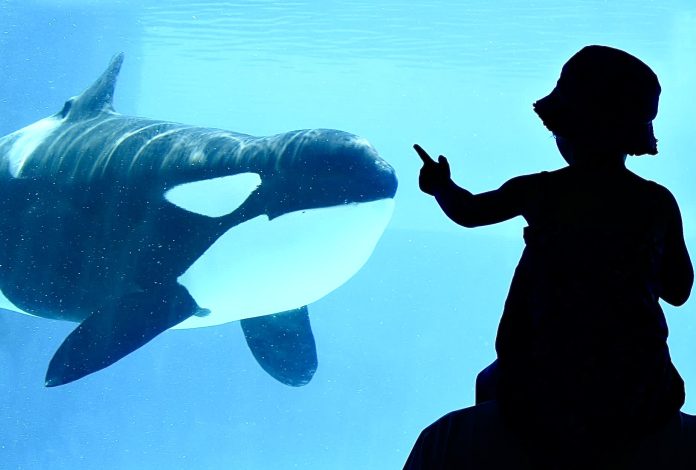
The SWIMS Act Has Been Reintroduced In The U.S. & Would Prohibit The Breeding & Wild Capture Of Whales For Captivity
You can help all animals and our planet by choosing compassion on your plate and in your glass. #GoVeg
RELATED ARTICLES
Undercover Investigation Reveals That New Fur Products Are Still Being Sold In California Despite Ban
Photos from HSUS
This week, the Humane Society of the United States (HSUS) released an undercover investigation identifying a handful of California retailers openly skirting...
Captain Paul Watson Foundation Fights To Stop The Killing Of Endangered Fin Whales In Iceland
Captain Paul Watson Foundation is launching Operation Ice Storm from Albert Dock in Yorkshire to directly oppose Iceland's last whaling company, Hvalur hf. Paul...
Conservation Groups Urge Federal Agencies To Prohibit The Killing Of Wildlife With Snowmobiles
More than 60 conservation groups from across North America filed letters today urging the U.S. Forest Service and Bureau of Land Management to immediately...
Popular stories
News
Breaking! $22,500 Reward Offered To Find The Criminal Who Killed Another Collared Female Wolf In Oregon; This Marks The 10th Wolf Killed In The...
Photo from Oregon State Police
Conservation and animal-protection groups announced a combined $22,500 reward for information leading to a conviction in the killing of a...
News
Call To Action! 300 Demonstrators Protest National Park Service’s Plan To Kill Tule Elk & Expand Ranching In California; Your Help Is Needed Before...
Photos by Tony Seghal, In Defense of Animals
A crowd of 300 people gathered at a large-scale, modern dairy facility operating inside of the Point Reyes National...
Featured
Breaking! A Generous Donor Protects 300 Acres Of South Oahu’s Rainforest To Save Native Species In Hawaii
A 300-acre parcel of rainforest in the southern Ko‘olau mountains in Oahu will now be protected indefinitely, due to a generous donation by a...


